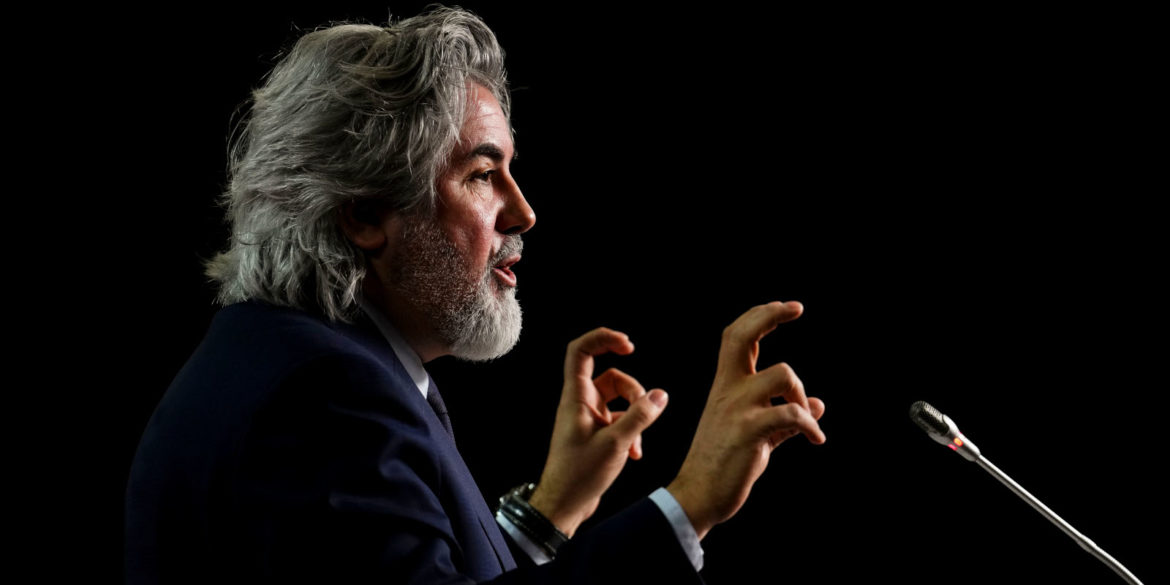Even more spectacularly than anticipated, the federal government’s attempts to become world leaders in rescuing journalism have not only collapsed but pushed the nation’s private sector news industry to the edge of an economic abyss.
It is difficult to recall a more complete public sector failure than that which Heritage Minister Pablo Rodriguez has engineered through his stubborn and uninformed management of the Online News Act, also known as Bill C-18.
As the Globe and Mail’s Andrew Coyne succinctly summarized the situation on Twitter:
“Never seen a government that so perfectly fused ruthless partisanship, ideological fanaticism and flower-child naivety.”
Internet law expert and University of Ottawa law professor Michael Geist was similarly concise in referring to Bill C-18 as “a massive own goal.”
“Cannot overstate the harm from this: news sector loses hundreds of millions, Canadians face degraded search results and prominence of low quality sources increase,” Geist tweeted. “Blame squarely on (Rodriguez) who did not take risks of flawed C-18 seriously.”
Lobbied for years by a news media industry that had seen billions of dollars in advertising shift from their suddenly less interesting products to the flashing lights and sensory balms of social media and search engines, the government of Canada decided to come to the rescue. In doing so, it might very well have killed the industry.
The companies it targeted are Meta, which operates Facebook and Instagram, and Google, through which Canadians funnel about 90 percent of their online search activity. Hyperbolic and unsupported claims that the web giants were “stealing our content” were thrown around (a comprehensive analysis by Montreal media analyst Steve Faguy can be found here.
Liberal and NDP politicians bashed Meta and Google resistance as “bullying.” Big tech executives were at first excluded from House of Commons hearings and then, once invited, smacked around contemptuously by Chris Bittle, the parliamentary secretary to the heritage minister, and others. Having watched their heritage critic, Rachael Thomas, be excoriated by Postmedia for daring to raise concerns all might not end well, Conservative politicians just tried not to alienate some of their friendliest publishers.
Meta made it clear as soon as C-18 was tabled that it would have to consider no longer carrying news. Google was less public but both companies pointed out they already had commercial and other arrangements with more than 150 Canadian publishers. Meta claimed that the free delivery its platform offered had a $230 million annual value to news organizations for which it wasn’t being credited. Google put its number at $250 million. Both made it clear that Bill C-18’s structure in terms of demanding compensation on a per-link basis over which they had no control, their unlimited liability under the Act, its baseball arbitration format, unrealistic expectations from news publishers/broadcasters and the enormous financial ramifications for them globally if Canadian legislation was replicated combined to create a hill to die on for them.
Their arguments were dismissed with the wave of a parliamentary hand.
Others, such as this writer, Geist, and Coyne (the latter suggested in commentary that it was perhaps the publishers who should be paying Facebook) were accused of being shills for or in the pay of “web giants.”
And so, determined that Meta and Google were bluffing, Rodriguez rejected all criticisms, suggestions, and warnings and Bill C-18 received royal assent on June 22.
Meta, true to its word, confirmed immediately that, once the Act came into force, it would “comply” by ceasing to allow the posting of links to Canadian news stories within Canada. Google, still hopeful it could find some way to, in exchange for improved spending, wriggle off Rodriguez’s hook, managed to get a meeting with officials in the prime minister’s office the night before the bill was signed by the Governor General. The next morning, Rodriguez invited them for an emergency meeting designed to keep them from announcing action similar to Meta’s.

After that meeting, there was a ray of hope, but when Rodriguez put his thoughts in writing, Google swiftly announced that it would eliminate Canadian news from its search results.
And then both it and Meta started canceling the deals they already had in place with publishers big and small. The amounts are unknown as they are confidential commercial contracts, but it is fair to assume they amount to at the very least tens of millions of dollars.
Jeff Elgie, CEO of Village Media, a company that specializes in digital local news startups where print has failed, had previously warned in Senate hearings that the departure of Facebook and Google from the news ecosystem would devastate his company. In a blog post to employees which he shared online, he estimated that “the potential impact on our traffic would be in the range of 50 percent: roughly 17-18 percent from Facebook (some sites more, some less) and 30-35 percent from Google search, Google News, and Google ads.
“From a news publisher’s perspective, it’s a perfect storm,” Elgie summarized. “…Village Media’s position on this is that this has been a bad bill from the start. It was based on bad messaging created by others in the industry. The premise of the bill was that Google and Facebook ‘steal’ our content when nothing could be further from the truth.”

The truth Rodriguez now has to face up to is that his department doesn’t understand digital economics and got suckered into producing legislation based on a fantasy.
And that as a result, the straits the nation’s news producers find themselves in today are far, far more dire than they were before he decided to “help.”
There are a few more weeks and maybe months left for Rodriguez to keep from being the guy whose hubris killed the Canadian news industry. After all, the blocking won’t begin until C-18 legally comes into force.
But fixing this will require something of which there’s been scant evidence to date within this government: humility.




